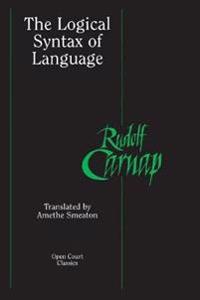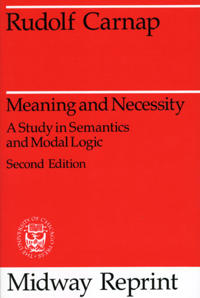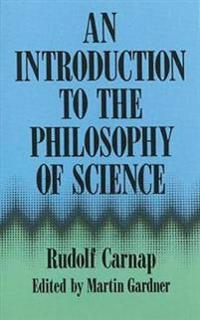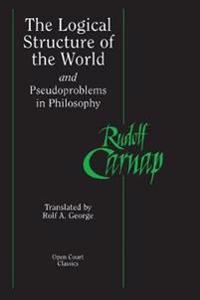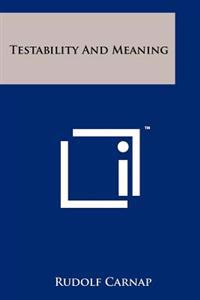Dear Carnap, Dear Van: The Quine-Carnap Correspondence and Related Work (Övrig)
avW. V. Quine, Rudolf Carnap
ISBN: 9780520068476 - UTGIVEN: 1991-04-11Rudolf Carnap and W. V. Quine, two of the twentieth century's most important philosophers, corresponded at length - and over a long period of time - on matters personal, professional, and philosophical. Their friendship encompassed issues and disagreements that go to the heart of contemporary philos[...]
The Logical Syntax of Language (Pocket)
avRudolf Carnap, Amethe (TRN) Smeaton, Rudolf Carnap
ISBN: 9780812695243 - UTGIVEN: 2003-01Rudolf Carnap's entire theory of Language structure "came to me," he reports, "like a vision during a sleepless night in January 1931, when I was ill." This theory appeared in The Logical Syntax of Language (1934). Carnap argued that many philosophical controversies really depend upon whether a part[...]
Meaning and Necessity (Häftad)
avRudolf Carnap
ISBN: 9780226093475 - UTGIVEN: 198802"This book is valuable as expounding in full a theory of meaning that has its roots in the work of Frege and has been of the widest influence. . . . The chief virtue of the book is its systematic character. From Frege to Quine most philosophical logicians have restricted themselves by piecemeal and [...]
An Introduction to the Philosophy of Science (Pocket)
avRudolf Carnap, Martin Gardner, Martin Gardner
ISBN: 9780486283180 - UTGIVEN: 199501The Logical Structure of the World and Pseudoproblems in Philosophy (Häftad)
avRudolf Carnap
ISBN: 9780812695236 - UTGIVEN: 200209In this text, Rudolf Carnap analyzes the fundamental elements of experience, the derivation of qualities, the construction of sensory classes and the construction of the special and temporal orders.[...]


